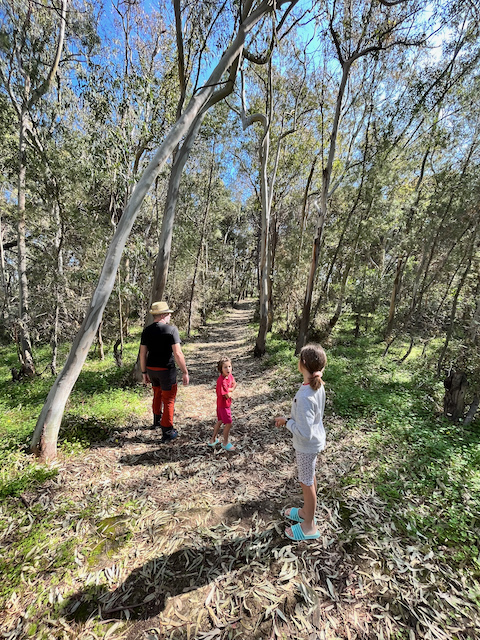Did you have those voices around you, growing up, that were more critical than encouraging?
Kids are born inept. They know nothing, are clumsy, needy, and frankly even when they make progress, it is slow. Thant being said, they hunger for encouragement and faith. They need adults to believe in them, especially when they don’t have a reason to trust they will make it. We, as adults have been there, needy and inept. And we survived and we even thrived as we got older. Because we had loving adults who believed in us or at least trusted the process and believed we’ll make it eventually.
I had my fair share of the critical chorus. People who expected something else from me. Who made me feel like I’m less. Oh, the sweet enveloping warmth affirming that I am enough, that fragrance from my mom, and that I am delightful and clever from my dad. They insulated my heart from all the negative messages I sensed just far enough from my core.
My parents corrected me also. But somehow I know their correction was fueled by love. I didn’t irritate them. They didn’t criticize me.
Fast forward to being a parent myself. My kids sometimes annoy me. Often times actually. When I (have to) repeat myself I reflect on how it comes across: as nagging? as correction? as criticism? If I let too much irritation transpire it come across as heavy and painful. I swim against the current and I try to remember all the good things as I go along. As the key to healthy parenting says: connect before you correct, because from a sense of deep connection kids will feel strongly motivated to listen and obey. We set the tone.
I learned early on to discern the critics from the ones motivated by love. Intuitively. And it is an invaluable skill. Take for example men. In general. My 1st to 4th grade teacher was a nearly retired grumpy old man, who did not like me. I learned from him, despite himself; he was so stubborn about not encouraging me, or most of us for that matter. But I knew, we all knew, he had his favorites. I learned to not seek his approval. At all. I insulated myself from his opinion. Imagine my surprise when I was praised by teachers in junior high. “Who helps you?” they would ask. “Nobody” said the self-sufficient low-expectations self.
Without too many words, my brother had higher expectations of me. I was a frumpy kid. A late bloomer without girly aspirations. As an older brother, his association with me was, let’s say, unflattering. And to this day, I have this nagging thought that he disapproves of my choices, of my success or lack there of. So I keep him at bay. I love him dearly, but I don’t want his opinion on most of my life. I like to discuss philosophy and values and social justice and adoption or traveling cheap, but my words fall flat when I think of sharing all these with him. I honestly feel less than, because deep down I feel we don’t share the same aspirations or maybe it’s all rooted in that comment he made, trying to help me change. But it only hurt. I was wearing mismatching clothes, green butterfly tights and a wavy skirt, and a funky pink shirt. I didn’t care. He told me I dress like a gypsy. And I cried. I cried in silence and hurt, that it is the only time my mom told him to apologize to me. I knew he felt bad. But his words stung like unloving criticism. We didn’t have a clothing budget. We wore what we had. Hand me downs, or from second hand stores, definitely mismatched clothes. I didn’t have a sense of fashion and there was nobody to inspire or help me. I was Jackie’s age. Probably around 10.
There is also a positive perspective. A few years later, my brother gave me the best gift of inclusion. I was 15 and he was home from college. He invited me to walk downtown to meet his friends for a soda and billiards. I was as tall as him. I remember saying nothing just observing the dinamic of his friends. They teased him saying that they thought he brought his girlfriend. His sister was ok. They were polite and kind to me. It was a pivotal moment in my adolescence. I never sought to be included. Someone important to me included me when in mattered.
I had this epiphany the other day. Conrad is tired of repeating himself. And our daughters, when he offers his correction, quietly come across as ignoring his words. It’s a recipe for disaster. The more he repeats himself, the more they ignore him. Then his words come across as criticism. And our eldest seems to insulate her heart from him. Connect and then correct. Such a fundamental simple rule. Harder to apply, of course. But it’s not complicate to remember.
Our daughters seek connection. They seek his approval. His appreciation and his delight in them. The conundrum is this: when they are obnoxious, forgetful, clumsy, loud, disobedient, and he feels too stuck to take the lead. What then?
We have the best conversations at night, after we put the girls to bed. We talk uninterrupted in the morning over coffee. We talk about all these things and more. He is a good man trying to do good work. Kindergarten and middle school are challenging ages from the point of view of fatherly respect or abilities and independence. But he is the adult. And he has to lead. He can’t wait for the kids to be worthy of appreciation, admiration and belief. The more critical he is, the clumsier the kids. And I see how they open up to me and they shine and move mountains in their own right. But these same kids shut him out when he criticize them.
I’m writing all these because there is still time. There is still time to course correct. The girls adore him and love to enter his world. Shoulder to shoulder they have adventures together. They play games, he teaches them things, he tells them stories and he is more playful than I am. And his authority and safe presence and discernment, his love for me and how he serves me, all these will serve them well as points of reference in life forever. I pray Conrad won’t get too discouraged in the process. I pray they will continue to grow and meet him halfway. Parenting is not easy. Being a mom, a bridge between worlds, a home maker, therapist, driver, chef, advisor and listener, preacher and praying warrior, it is not for the faint of heart. I don’t know if all the moms see as clearly as I do. I always assumed all moms have the same insights and clarity and drive. But we are all gifted with different stories, contexts, with spouses and kids. And we rise to the occasion.
My bottom line this time is to make a point in noticing the good. Let some things slide. Perfection is not the goal. Build their heart. Always be honest. Don’t offer empty praise. Build your spouse. Help them along the way. A healthy relationship between dads and kids is a strong foundation for the future. Encourage connection. Make room for correction. Empower. Be silent when possible. Speak clearly when necessary. May God redeem every shortcoming. May we all seek Him faithfully.

